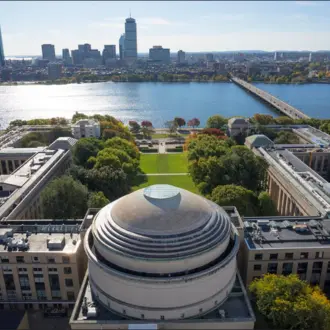“The foundation of successful leadership during turbulent times is trust—gaining it and granting it,” says Antoinette Schoar, the Stewart C. Myers-Horn Family Professor of Finance and Entrepreneurship at MIT Sloan. It sounds simple, but Schoar points out that this essential building block was not universally set in place by global leaders during the COVID-19 pandemic. “This crisis has introduced unprecedented levels of uncertainty into our lives, and we must be able to trust our leaders in order to find our collective way through it. Unfortunately, some leaders have done more to erode trust than to build it.”
The first step toward gaining trust during such turbulence is to admit the limits of your knowledge. “If you look around the world at governments that have been most effective in containing the virus, a key common denominator is humility,” says Schoar. In countries such as Germany, South Korea, and Japan, leaders quickly acknowledged that the list of unknowns about the virus was much longer than the list of knowns. They communicated the need for coordinated efforts and tradeoffs even as they admitted that they could not yet say exactly what those tradeoffs would be.”
As a result, Schoar notes, people in those countries were more likely to believe that evolving guidelines and restrictions were based on the latest and best understanding of the facts associated with the pandemic—and to follow the advice of their leaders. By contrast, countries that have performed poorly on compliance and containment are led by individuals who projected certainty early on at a time when there was no certainty. “The problem is that when those leaders had to backtrack or change course, people lost faith in the measures they were asked to adopt. At that point, coordinated responses became much more difficult and containment almost impossible,” she says.
Granting trust is as important as gaining it
Leaders of private organizations face the same challenge when it comes to gaining the trust of their workforces. The natural tendency is to say nothing until a new plan is in place, but even a brief lapse in communication during a crisis can erode trust. A CEO who acknowledges at the outset that it’s too soon to know who will return to work when and under what conditions, for example, has more credibility when tough decisions are implemented.
At the same time, Schoar believes company leaders must learn to demonstrate trust in their employees in new ways. “Before the pandemic, executives and managers tended to rely on inputs such as seeing how much time people spent in the office to assess performance. Longer hours were taken to mean greater productivity. That metric no longer exists when everyone is working from home.”
In its place, companies are looking at outputs to measure performance. “It takes a different mindset to rely on the products and solutions your employees are producing as the leading indicator of productivity,” Schoar says. “You must trust that your processes and your staff will deliver even when you’re not continually watching over them. And if someone can get the job done in their pajamas during the pandemic, why not continue with that approach after the crisis has abated?”



